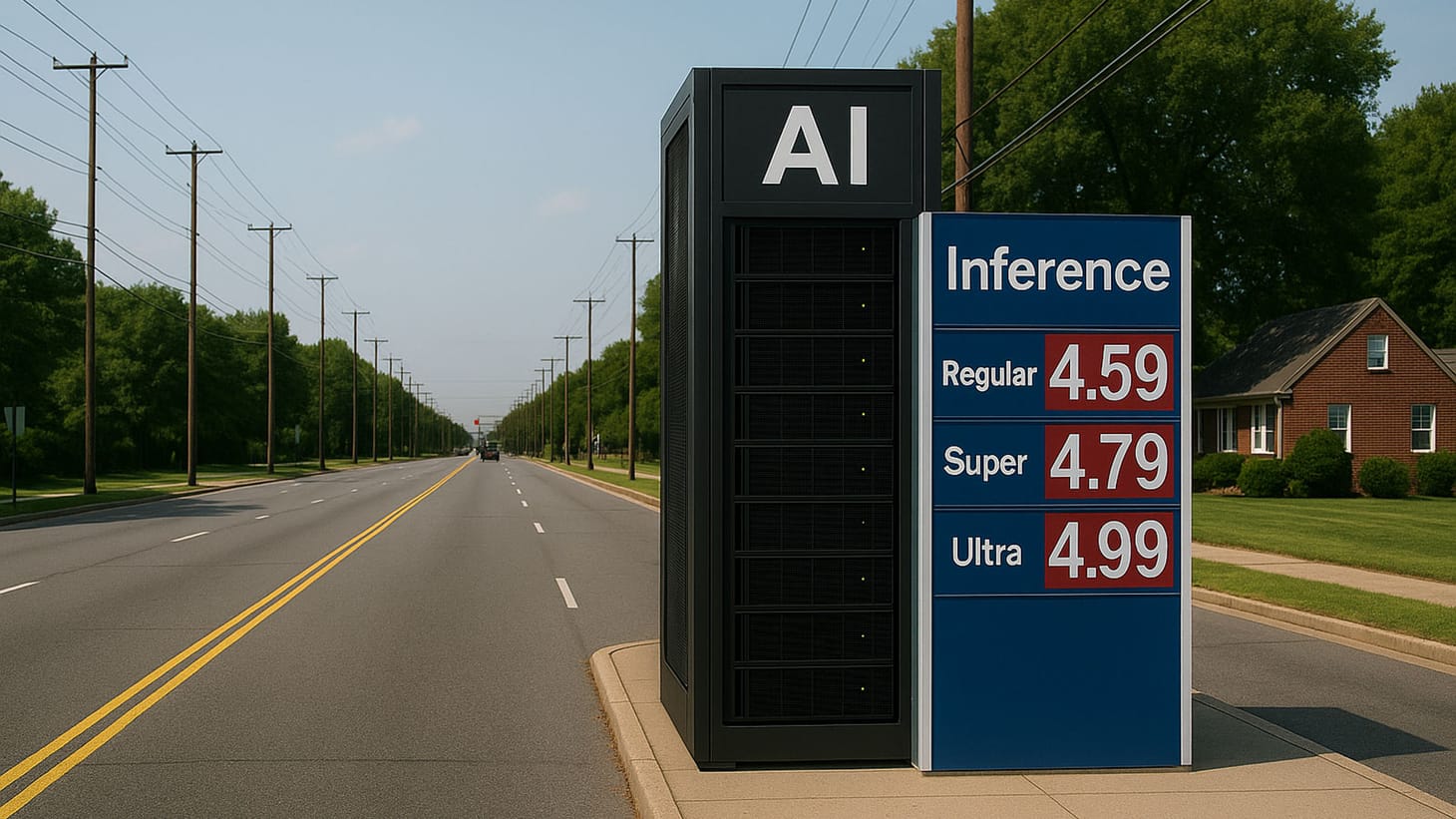AI Is Too Busy To Take Your Job
Energy Is Too Valuable to Waste on Tasks Humans Can Do.

For the past fifty years, human labor was expensive, and software was cheap. Yet humans remained busy because software wasn't good enough to perform most human tasks. Today, discussions about the future of work assume software will become skilled enough—and remain abundant enough—to replace most human jobs.
But there’s another possibility: software might become far more capable, yet simultaneously become scarce. In that world, humans wouldn’t just keep their current roles; they’d reclaim tasks currently done by software, freeing computing and energy resources for critical tasks only software can handle.
Energy will become the economy's ultimate currency. It will determine whose ads reach consumers, whose missile defenses intercept targets, and whose self-driving cars navigate safely. In a world defined by superhuman software, every marginal unit of energy represents a marginal gain in power, profit, or security, ensuring its strategic allocation above all else.
Advanced AI models already consume immense energy, not just during training, but even while performing everyday tasks. Reasoning models such as ChatGPT o3, Gemini 2.5, and DeepSeek R1 require particularly large amounts of energy and computing power. If software becomes truly superhuman, it won’t spend its days sorting emails or analyzing routine documents. Instead, its powers will be reserved for tasks demanding every available resource—missile defense, cyber defense, crime prevention, traffic regulation, real-time vaccine development, or sophisticated resource allocation.
One might argue that even if we have superhuman software, older software or weaker AI models could still perform trivial tasks cheaply. But this misses the crucial point of opportunity cost: any marginal unit of energy that could tip the scales in finance or warfare would always be too valuable to waste on trivial tasks. As long as energy and computing resources determine competitive outcomes, there will always be something better to do with them than waste them on tasks humans can handle.
This isn’t unprecedented. Historically, the most productive beings — human beings — commanded a premium, outsourcing lower-value tasks to animals, machines, software, and less productive people. Resources such as food, land, and energy similarly flowed toward these productive individuals, even at the expense of broader distribution that might seem fairer or more "rational." Across the economy, the most productive compete on solving a relatively tiny number of high-value/high-leverage problems, rather than spreading their talents across more problems and all industries.
In a world shaped by superhuman intelligence, this dynamic would extend further: now, AI will push lower-value tasks back to humans. In a sense, this scenario flips The Matrix on its head. Instead of humans trapped in pods, harvested as batteries for machines, humans move freely, but voluntarily conserve energy so that AI can perform tasks humans never could.
Ultimately, this flips conventional wisdom: in an era of superhuman computing, human labor isn't replaced — it becomes essential again.
Will AI take your job? Not if it has something better to do. Call it Poleg’s Paradox: If AI is superhuman, it's a waste of energy to use it for tasks humans can do themselves. Ironically, the more powerful AI becomes, the more work it leaves for the rest of us.
Best,

P.S.
I wrote this piece in collaboration with Claude Sonnet 3.7 and ChatGPT 4.5. Appropriately, access to both models is restricted due to the scarcity of energy and computing resources. Does this prove my thesis? Partly. But if AI can still help people like me write newsletters, it's not yet too busy to take anyone's job.
🎤 How will AI reshape our cities, companies, and careers? My speaking schedule for the summer and fall is filling up. Visit my speaker profile and get in touch to learn more.
Old/New by Dror Poleg Newsletter
Join the newsletter to receive the latest updates in your inbox.

